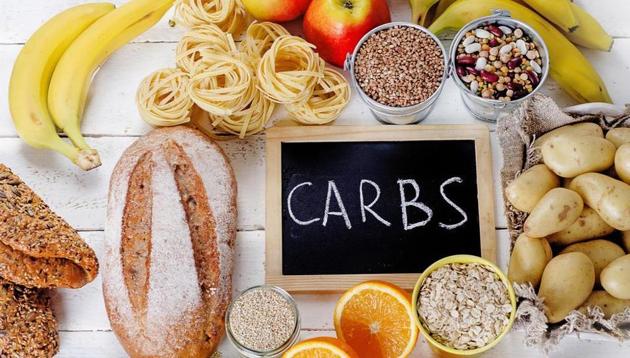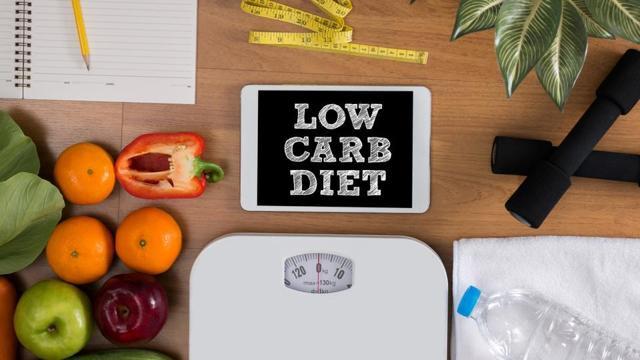Low-carb diet can be harmful for health, here are 6 signs to watch out for
Don’t skimp on the carbohydrates, which are the fuel for your body. Experts tell you the pitfalls of a low-carb diet, which types of carbohydrates to consume, and the warning signs that you are not consuming enough carb.
While we all know that carbohydrates give us energy, many people think of it as fattening and unhealthy. As a result many people strike carbs off the diet plan, and or go on a low-carb diet. Studies have also highlighted several benefits of going on a low-carb diet.

A 2017 study has shown that a low-carb diet is far more effective in knocking off weight than a low-fat diet. Another study suggests that high levels of carbohydrates can reduce fertility. Low-carb diets are also supposed to reduce your risk of mortality and prevent recurrence of cancer after treatment.
However, there are certain pitfalls as well to going on such a diet. And in the process, you can end up depriving your body of essential nutrients.

Benefits of carbohydrates
“When we consume carbohydrates, the enzyme ‘Amylase’ converts them into glucose, the primary fuel that the body uses to power cellular activity. The heart, brain, kidneys and muscles need carbohydrates to function. Excess carbohydrates can be stored in the liver and muscles for later use, after being converted into glycogen. It is also a good source of fibre and aids weight control,” says Jaee Khamkar, Dietician, Fortis Hospital Kalyan, Mumbai.
Carbohydrates are also necessary to ensure your brain health is at its best and that proteins don’t have to double up as a source of energy. “Carbohydrates are an important source of instant energy, and contribute to the body’s energy reserves. The only source of fuel for the brain is glucose, and every ounce of carbohydrate is eventually simplified into glucose. Carbohydrates spare proteins from being utilised wrongly for energy, as opposed to its original function which is muscle building,” says Amrita Parab, nutritionist at Digestive Health Institute by Dr Muffi.

Types of carbohydrates
Carbohydrates are divided into simple and complex carbs. Simple carbohydrates (sugar/jaggery/honey/maida) bring about a quick rise in blood sugar levels as compared to complex carbohydrates (oatmeal/brown rice/sweet potato) which are unprocessed and rich in fibre. “A complex form of carbohydrates brings about a delayed and gradual rise in the blood sugar levels after it is digested. This trait is favourable for us. Hence, it is essential that we include a complex form of carbohydrates in our diet for sustained release of energy,” says Parab.
The key to get the most benefit from carbohydrates is to ensure that you eat the right kind of carbohydrate and in a moderate quantity. “Serious complications can develop if you deprive your body of adequate carbohydrates for a prolonged duration. For example, your body might begin to break down muscle tissue to act as fuel. As the levels of ketones rise in your bloodstream, your blood can become acidic, placing stress on your kidneys and other organs,” says Khamkar.
And for diabetics, the lack of complex carbohydrates can cause episodes of hypoglycemia and more sick days, says Parab.

Here are some signs that indicate you are lacking in carbohydrates:
• Weakness in the body: If you make a transition from a carbohydrate heavy diet to a low-carb diet, the body needs to adjust to the change. In the process you may feel low on energy. “Low-carb diets cause lack of energy because carbohydrates play a role in the burning of fats, which produce energy. Lack of energy can cause dizziness, nausea, headaches and fatigue,” says Khamkar. This weakness can also be reflected in the thinning of limbs (muscle mass breakdown), hairfall, skin damage, and compromised immunity, says Parab.
.• Bad breath: Low-carb diets often lead to incomplete burning of fats to produce energy in the body, which causes more ketones to be produced. “Excessive ketones in the body come out through the urine and saliva. This causes bad breath among people on low-carb diets,” says Khamkar.
• Constipation: Foods that are low-carb have very little fibre which can cause constipation. “You can avoid that by including vegetables in your diet, since they have soluble fibres that slow down the movement of food in the intestines and ensure complete digestion of food,” says Khamkar.

• Dehydration: Low-carb diets burn glycogen which is stored in your body, and which has a high water content. Excretion of ketones through the urine also causes frequent urination. Such loss of water can leads to dehydration, which can also cause headaches and fatigue,” says Khamkar.
• Muscle cramps: Diets low in carbohydrates can impact your muscles because of the dehydration due to consumption of a low-carb diet and the lack of vitamins important for the well-being of muscles. “Muscle cramps can reduce your fitness and energy levels as well,” says Khamkar.
• Craving for sugar: As sugar levels fluctuate, you may have more of a craving for sugar and there may be increase in episodes of hypoglycaemia (low blood sugar), says Parab.
Follow @htlifeandstyle for more
Catch your daily dose of Fashion, Health, Festivals, Travel, Relationship, Recipe and all the other Latest Lifestyle News on Hindustan Times Website and APPs.




